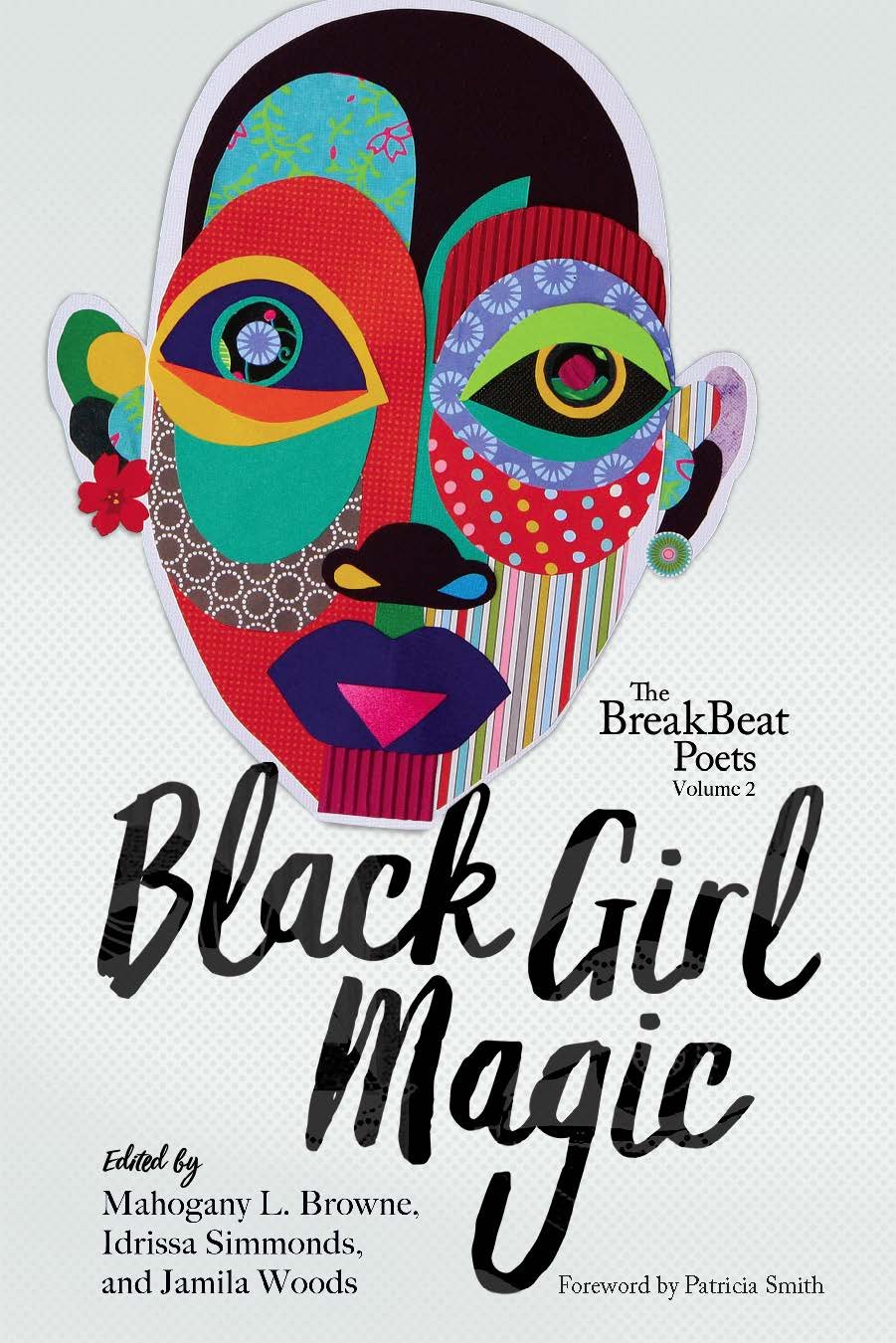The aptly named Black Girl Magic, sequel to 2015’s The BreakBeat Poets: New American Poetry in the Age of Hip-Hop, pays homage to womanhood and livelihood as it asks what it means to be Black and female. With the editorship of Mahogany L. Browne, Idrissa Simmonds, and South Side household name Jamila Woods, Black Girl Magic compiles work from more than sixty Black women from across the diaspora, including well-known artists like Chicago’s Noname.
But no, this collection of poems isn’t about voodoo––unless you count the art of crafting experiences into words, and words into rhymes so fresh that they blossom like ripened fruit as sorcery. Modern and compelling, Black Girl Magic invites the reader to recognize the lyrical qualities of daily life for Black women. With wordplay for the “Gawds,” it pairs the stylistic choices of a poet with the emotional creativity that only a Black woman can possess.
“You Mean You Don’t Weep at the Nail Salon?” a poem by Elizabeth Acevedo, expresses this tenderness through the mundane challenges of PMS and beauty routines. “self-portrait with dirty hair” by Safia Elhillo and “my afropuffs” by Jamila Woods follow suit, as the poets explore their identities in relation to both Black culture and the wider scope of white society that surrounds them.
The sheer vulnerability and transparency of the featured poets is as evident as afros are round. In “Love and Water” by Thiahere Nurse, lines like “It is possible that when you called him daddy he remembered the abortion / and was disgusted by you, all over again” humanize struggles rarely found in the mainstream.
Similarly, Destiny Hemphill’s “shadowboxin, session one” recounts the daily fatigue of battling one’s demons with rare honesty. Hemphill writes: “it’s dangerous to remember explodin stars / aka little sad blck girls/ like me/ & i mean, at least the demons keep me company.”
Support community journalism by donating to South Side Weekly
As I read through this anthology, the notion that my story was being told weighed heavily on my mind. As a Black woman and a poet, it was like holding up a mirror and seeing my reflection. The stories that these poets share with their audience are relatable, heartfelt, and honest. Black Girl Magic goes out of its way to encompass a variety of experiences, and yet it stays grounded in reality, artfully blending the contemporary with the traditional.
The Black girl magic of the title, one finds, is an essence that contains ancestral ties and spans generations of women. Xandria Phillips’s “SARA BAARTMAN AND I NEGOTIATE VISIBILITY” binds the author’s experiences to those of Sara (or Saartjie) Baartman, a young South African woman who was captured by whites and displayed at freak shows in nineteenth-century France. In “Exile,” Diamond Sharp imagines herself discussing her Blackness with famous playwright and Chicagoan Lorraine Hansberry.
In “Ode to Fetty Wap (written after strip club),” one of my favorite works from this collection, Roya Marsh writes: “I too, have a glock in rari; / in the form of a master’s degree.” Eboni Hogan’s “Cardi B Tells Me About Myself” takes Black pop culture in another direction: “You wring your left thigh / they call you Vintage JuJu. / They like, ‘is some kind of nightmare?’ / And it’s just you, smoking a blunt in the dark, cackling like rain…”
Elsewhere, poets introduce us to the new age magic found beside struggle in Black communities: “Here are the Niggas With / Amethyst crystals,” Morgan Parker wants us to know in “Magical Negro #80 Brooklyn.” In “Look:” Simone Savannah picks up where Parker leaves off, expressing the spiritual and health-conscious ways some women choose to live their lives. “splits so deep / my pussy kisses / the blue yoga mat,” she writes.
Black Girl Magic allows Blackness to exist on a spectrum as diverse as it is interconnected. This is an anthology that tells us there is magic in even the most ordinary activities—and the effect is like a warm blanket, tumble-dried and scented with lavender.
Mahogany L. Browne, one of the editors of Black Girl Magic, states in the book’s foreword that “Black Girl Magicians are mantras, prayers, and promises of our survival.” Expect nothing less from this collection of stories, miracles, and dreams. Just try not to get too much stardust in your eyes while reading; there’s magic written all over these pages.
Kristen Simmons is a contributor to the Weekly. She is currently in her third year at the University of Illinois at Chicago studying English Professional Writing. A Mississippi native, she has had the opportunity to live in multiple Chicago neighborhoods. She last wrote for the Weekly’s Food Issue about Cafeteria Yesenia, the only Cuban restaurant on the South Side.

